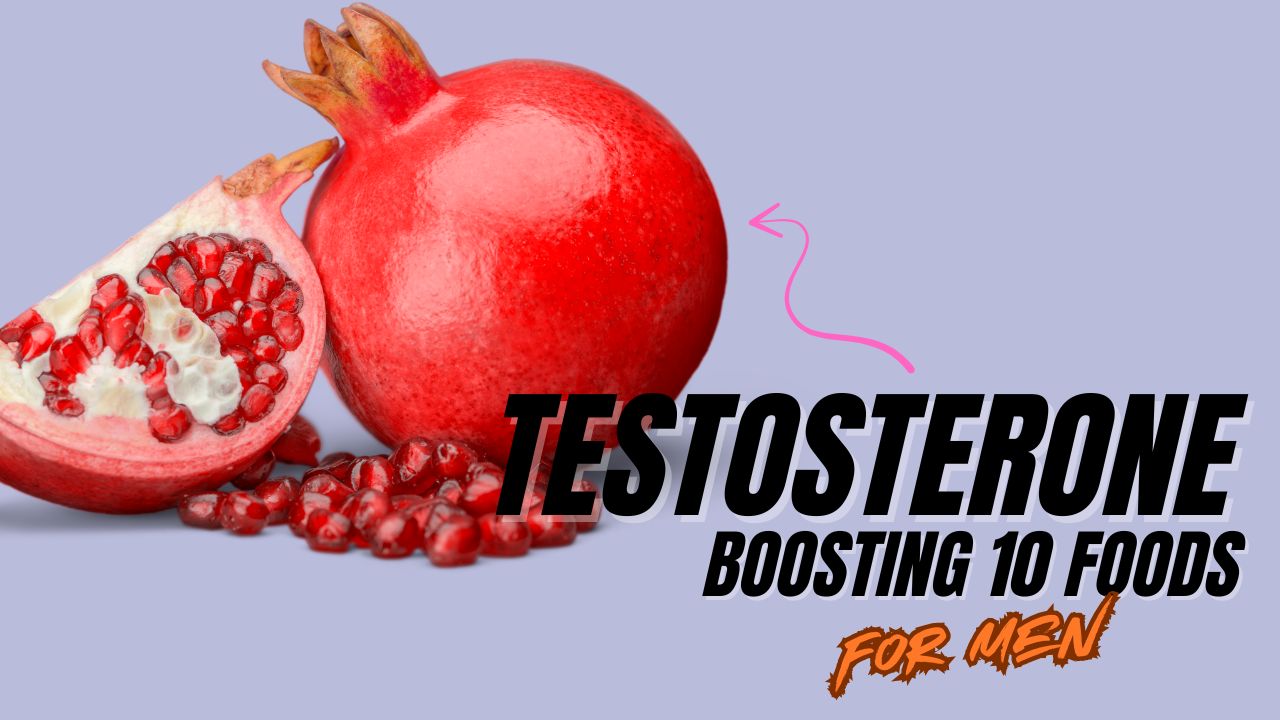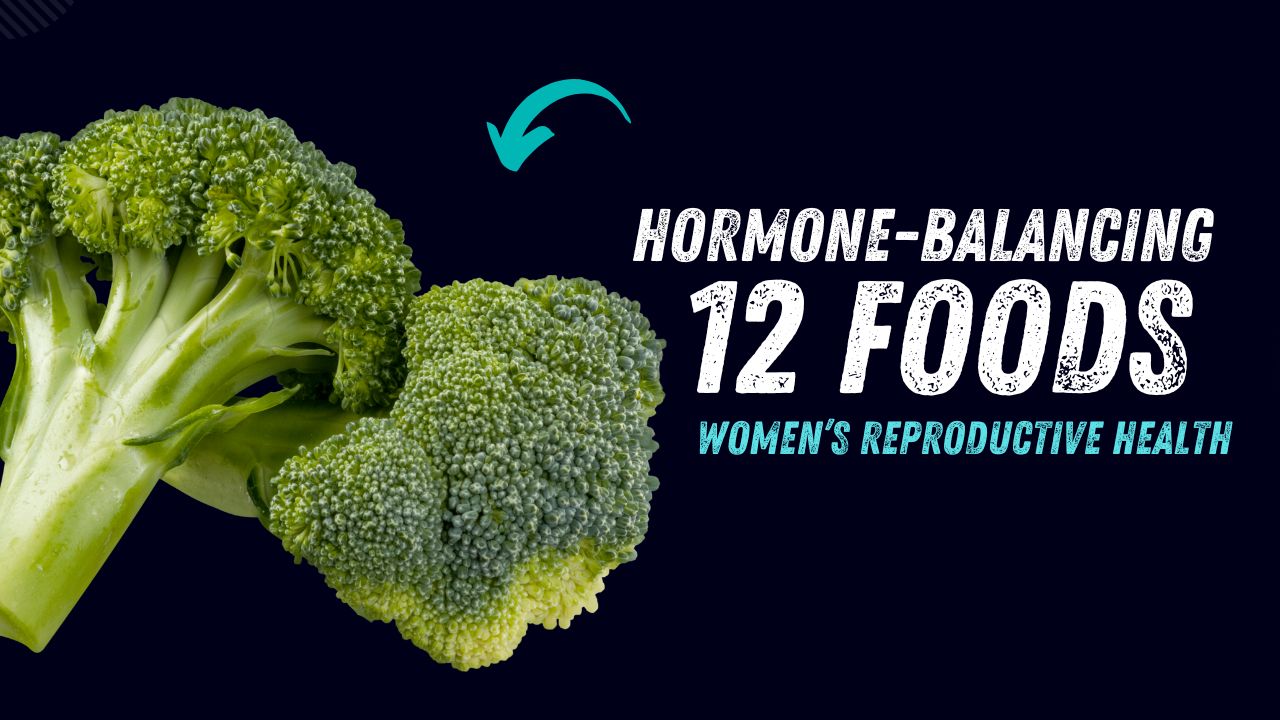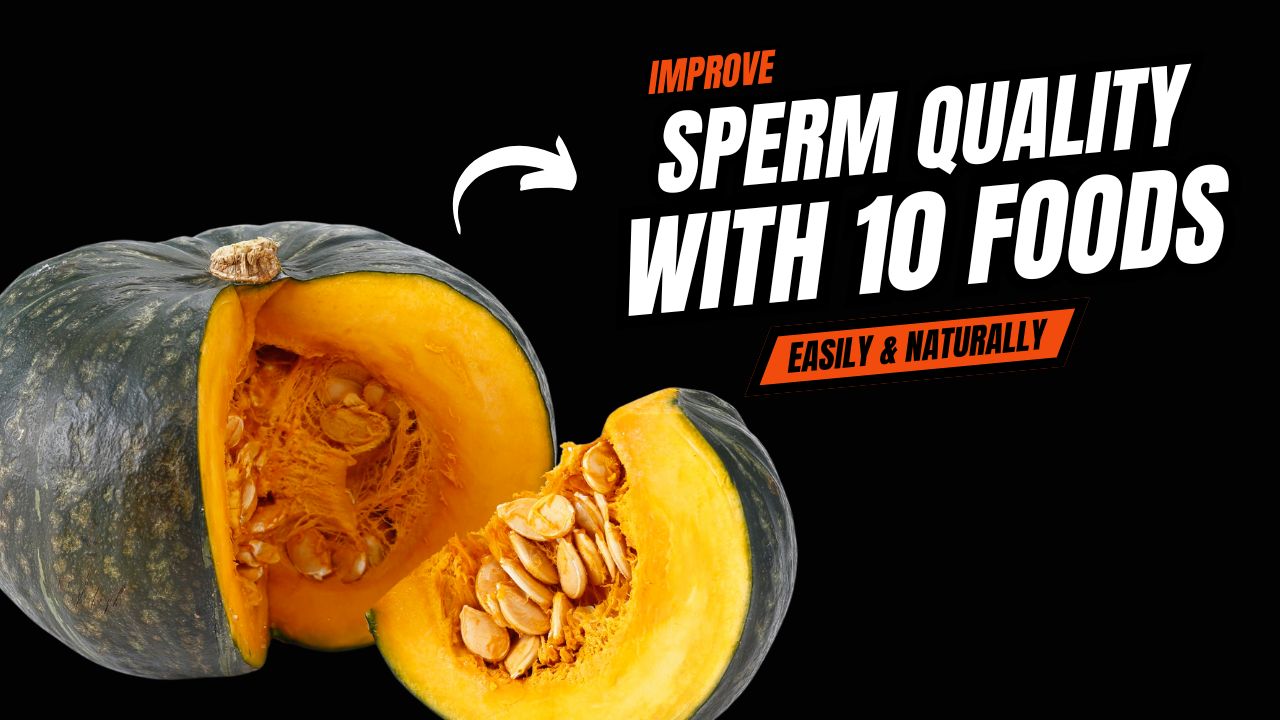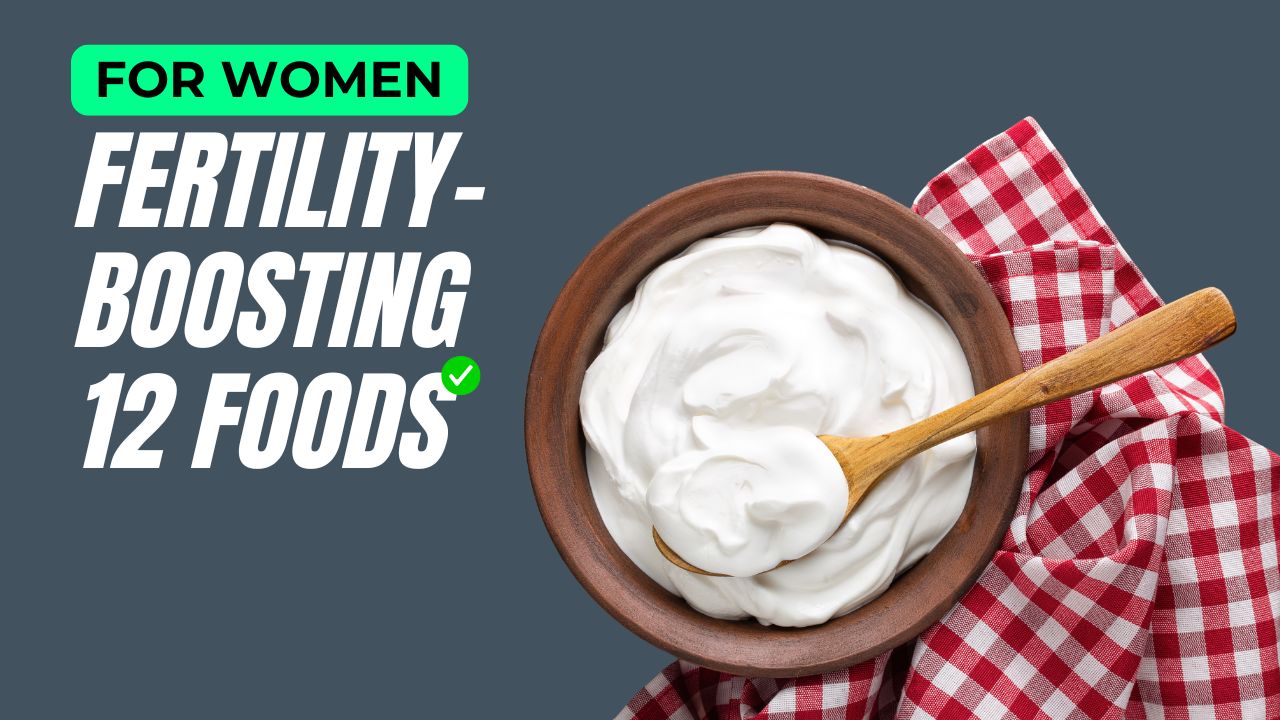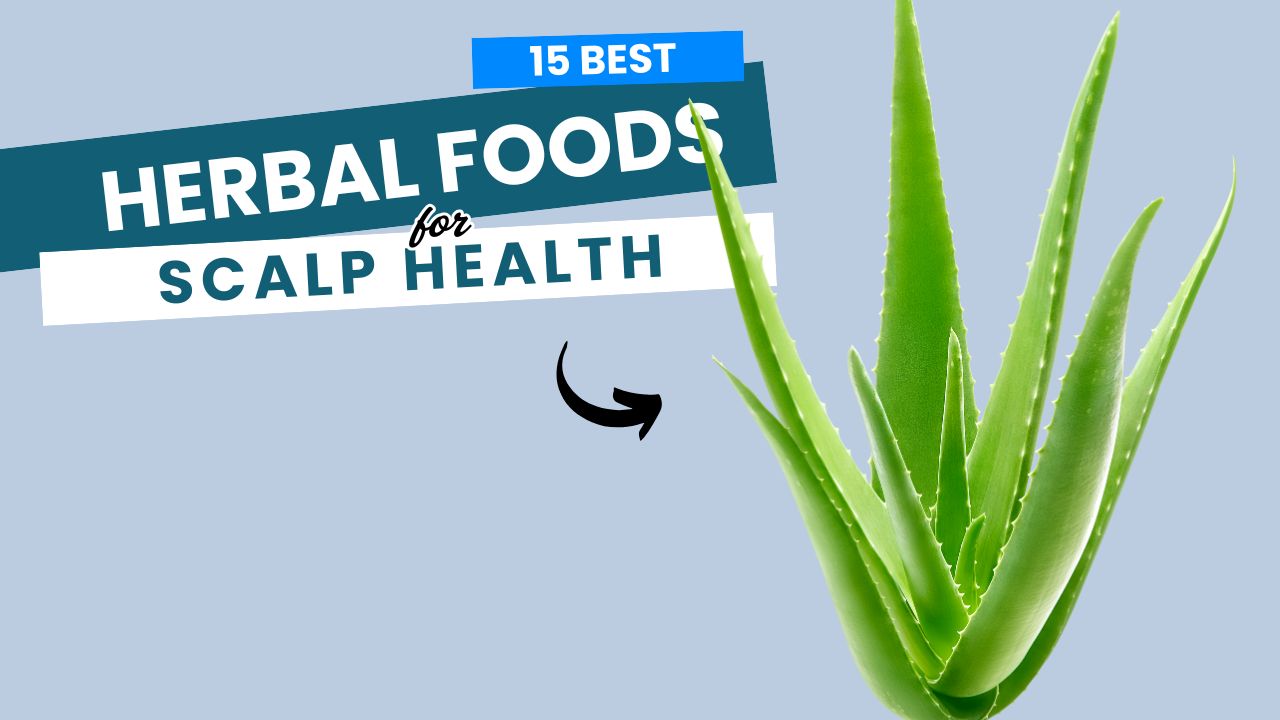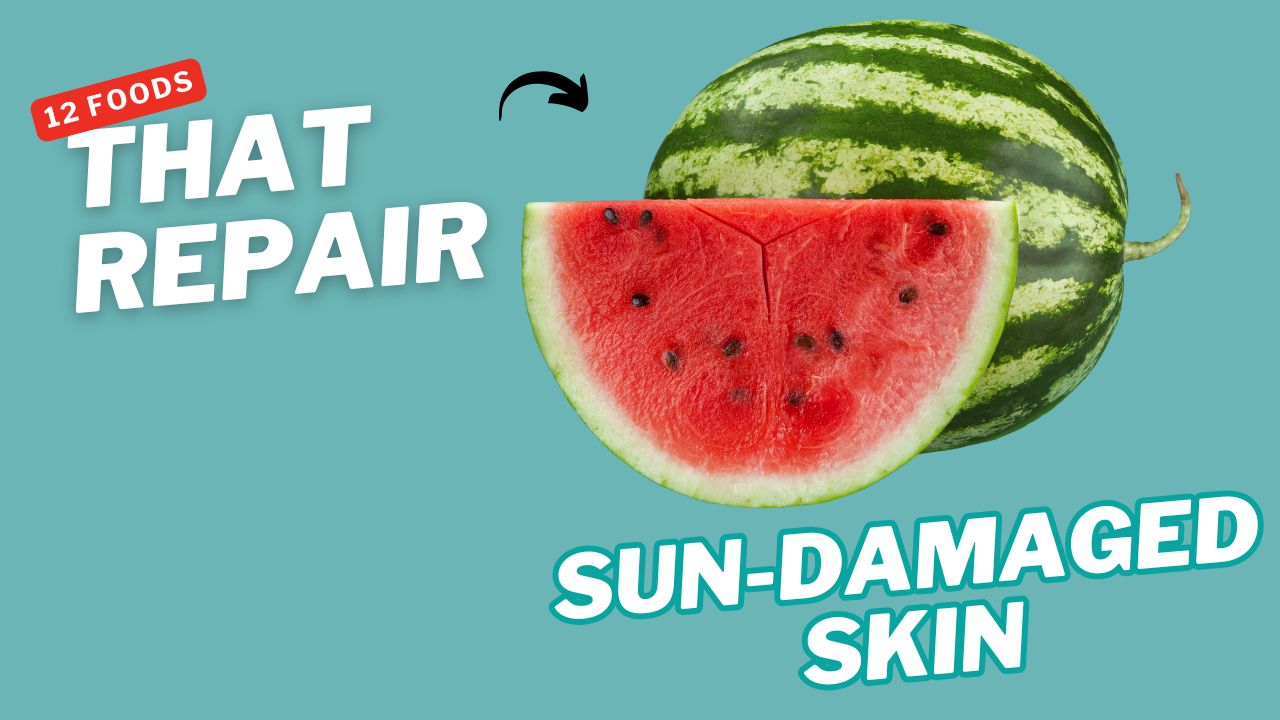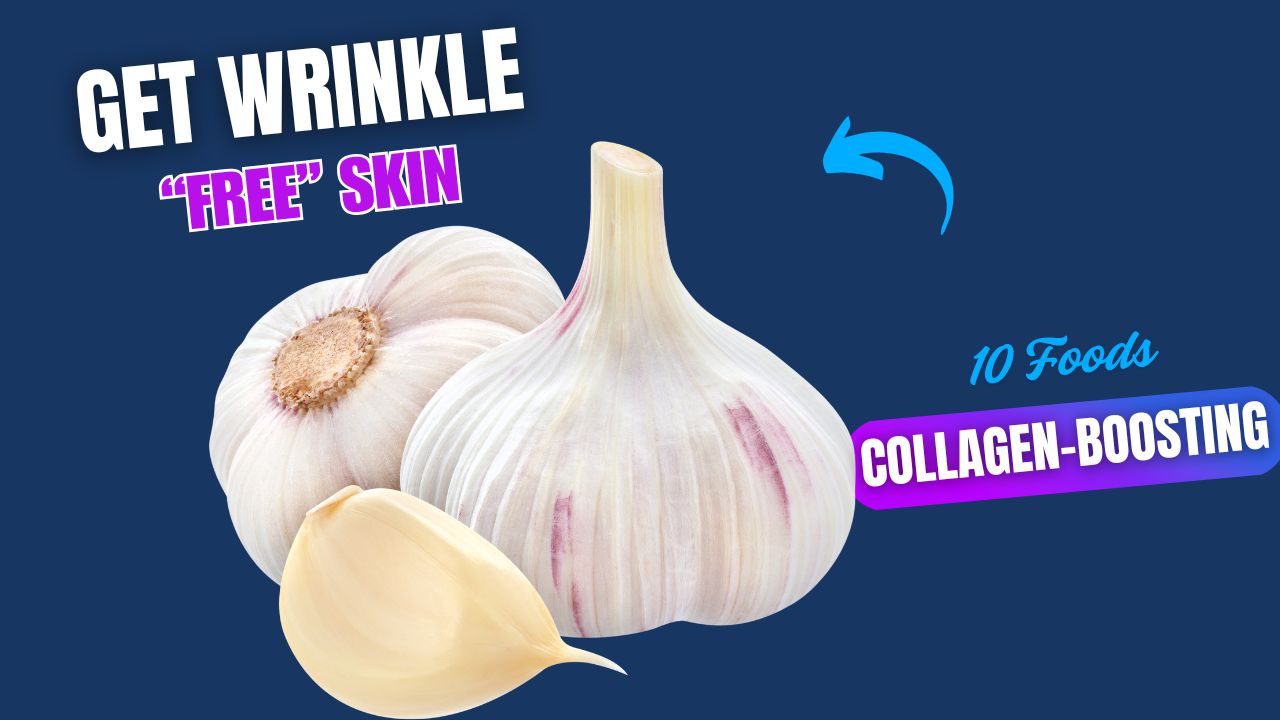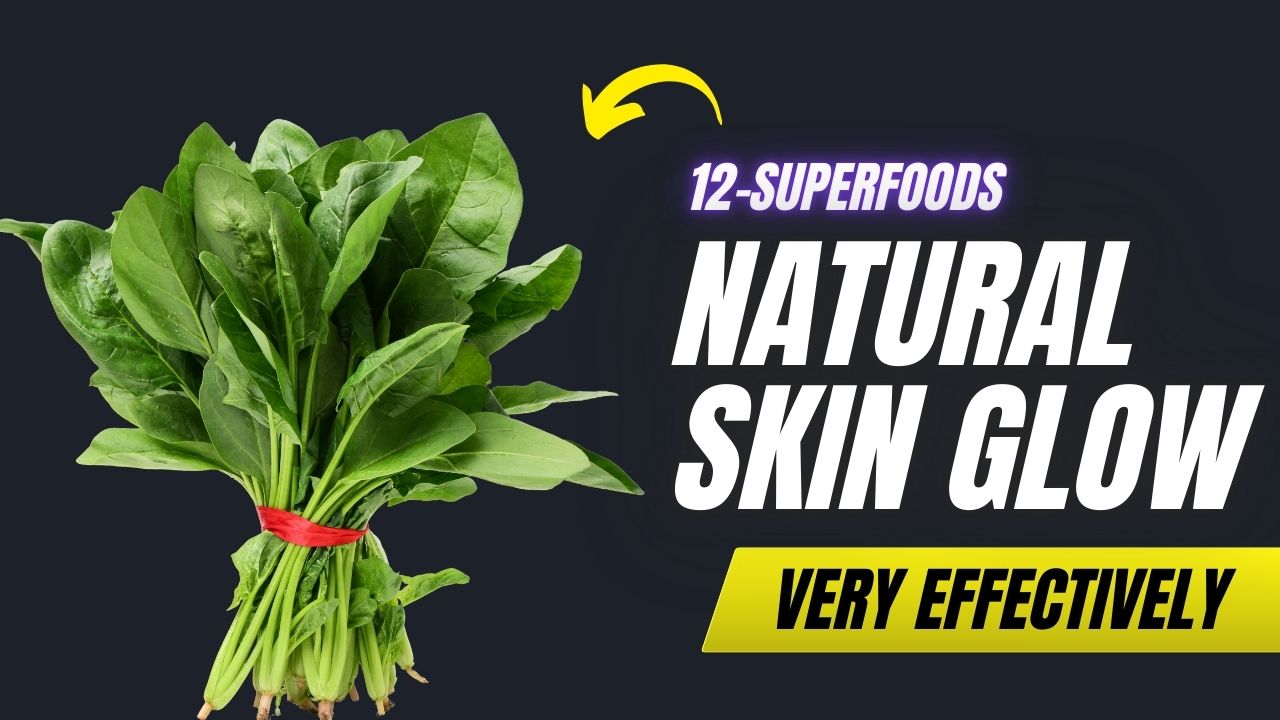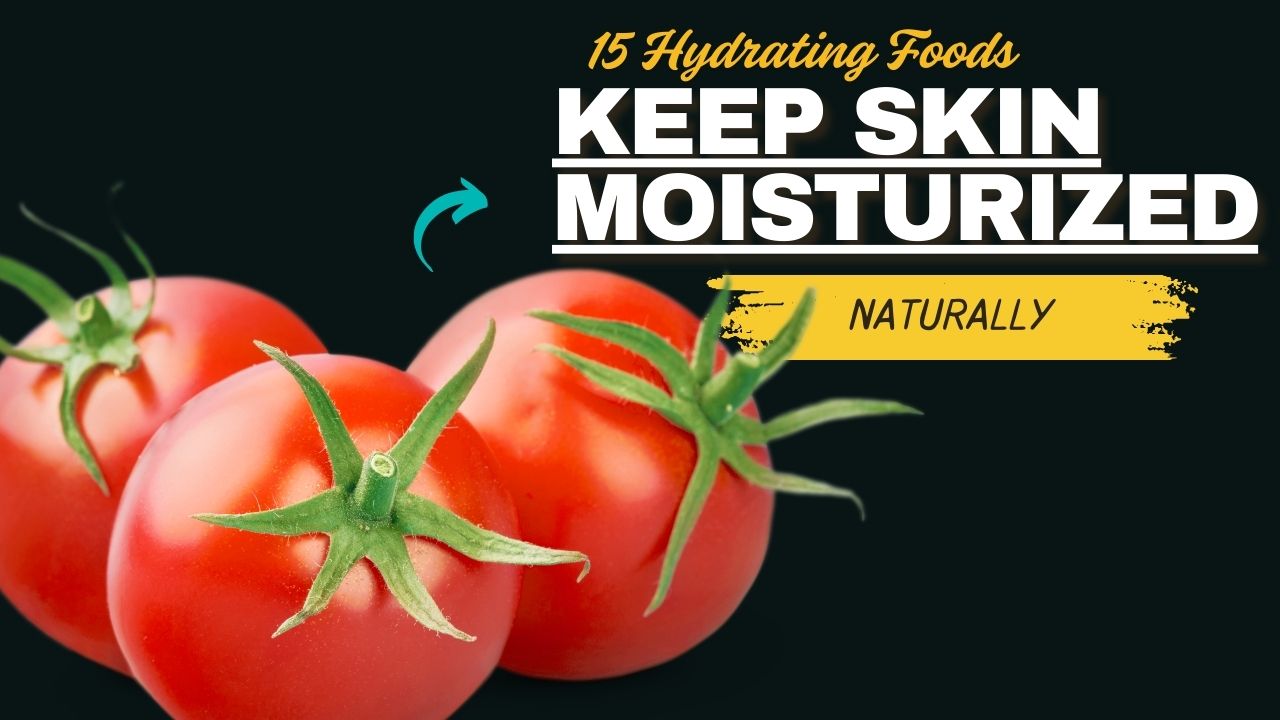Did you know that nearly 40% of fertility challenges in couples are linked to male reproductive health?
While lifestyle factors such as stress, lack of exercise, and smoking are widely known to affect fertility, diet plays one of the most crucial roles in sperm quality. Many men overlook how everyday foods can directly influence sperm count, motility, shape, and overall vitality.
Here’s an eye-opening fact: sperm health is not only about fertility; it’s also a marker of overall men’s health. Studies show that men with healthy diets rich in antioxidants, vitamins, and essential minerals often have stronger immunity, better energy levels, and improved hormonal balance.
In this post, we’ll uncover 10 science-backed foods that can improve sperm quality naturally, along with the best ways to eat them, who should include them in their diet, storage tips, and even precautions. By the end, you’ll have a practical guide to enhance fertility and overall wellness through nutrition.
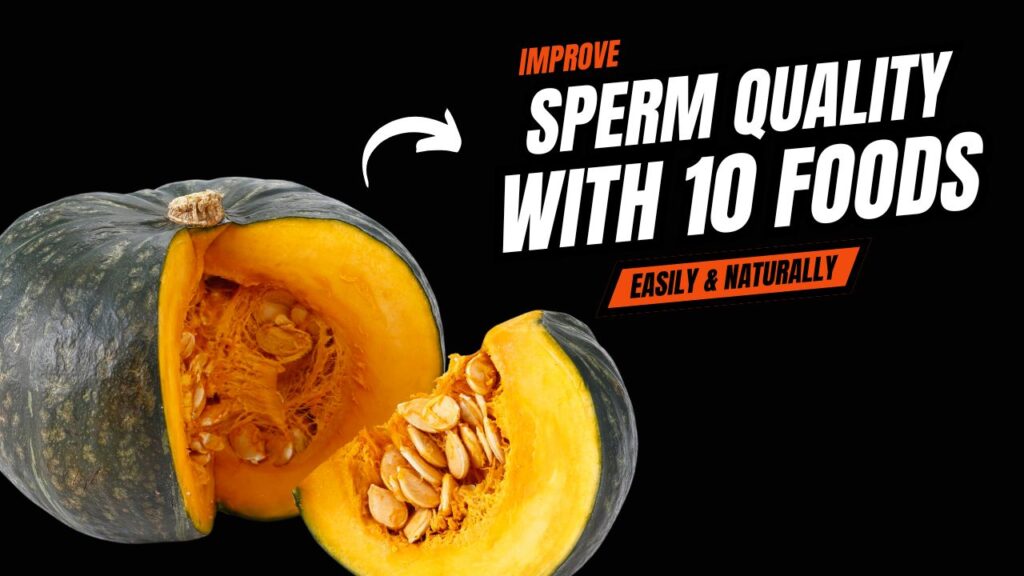
Table of Contents
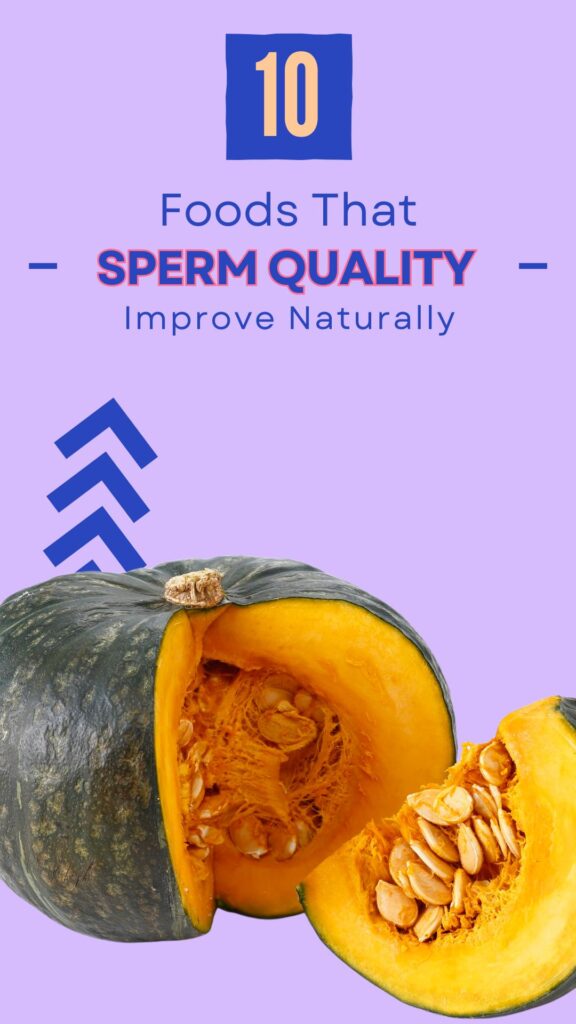
10 Best Foods To Improve Sperm Quality
1. Walnuts
Walnuts are loaded with omega-3 fatty acids and antioxidants, both of which play a crucial role in improving sperm motility and protecting sperm cells from oxidative damage.
Best Ways to Eat or Use It
- Raw as a snack.
- Add crushed walnuts to oatmeal or yogurt.
- Blend into smoothies for a creamy texture.
Who Should Eat / Avoid
- Good for: men with high stress, athletes, and those needing brain-boosting nutrients.
- Avoid if: you have a nut allergy or digestive sensitivity.
Storage & Buying Tips
- Choose unsalted, raw walnuts.
- Store in airtight containers in the refrigerator to prevent them from turning rancid.
Do’s & Don’ts
| ✅ Do | ❌ Don’t |
|---|---|
| Eat raw or lightly roasted | Store in humid conditions |
| Pair with fruits for added fiber | Overeat (high in calories) |
Possible Side Effects
Excessive intake may cause bloating or gastrointestinal discomfort due to high fat content.
2. Tomatoes
Tomatoes are rich in lycopene, a powerful antioxidant linked to improved sperm morphology (shape) and motility.
Best Ways to Eat or Use It
- Cooked tomatoes release more lycopene—tomato sauce, soups, or grilled tomatoes are excellent.
- Pair with olive oil for better absorption.
Who Should Eat / Avoid
- Good for: men looking to reduce oxidative stress.
- Avoid if: you suffer from severe acid reflux or tomato allergies.
Storage & Buying Tips
- Pick firm, brightly colored tomatoes.
- Store at room temperature, not in the fridge, to maintain flavor.
Do’s & Don’ts
| ✅ Do | ❌ Don’t |
|---|---|
| Cook with olive oil for max benefits | Store in plastic bags |
| Choose ripe red ones | Overuse canned tomatoes with preservatives |
Possible Side Effects
Overconsumption may cause stomach acidity in sensitive individuals.
3. Pumpkin Seeds
A little-known fact: pumpkin seeds are a zinc powerhouse, an essential mineral for testosterone production and sperm count.
Best Ways to Eat or Use It
- Sprinkle on salads or soups.
- Add to smoothies or oatmeal.
- Eat roasted seeds as a crunchy snack.
Who Should Eat / Avoid
- Good for: men with low testosterone levels, vegetarians needing zinc.
- Avoid if: you have seed allergies.
Storage & Buying Tips
- Buy unsalted, raw, or roasted seeds.
- Store in airtight jars away from moisture.
Do’s & Don’ts
| ✅ Do | ❌ Don’t |
|---|---|
| Eat in moderation daily | Buy salted/flavored seeds with additives |
| Store in cool, dry place | Leave exposed to air (turns rancid) |
Possible Side Effects
Overeating can cause stomach upset due to high fiber content.
4. Dark Chocolate
Dark chocolate contains L-arginine, an amino acid that may boost sperm volume and improve circulation.
Best Ways to Eat or Use It
- Choose 70% cocoa or higher.
- Enjoy small squares after meals.
- Use in smoothies or desserts with fruits.
Who Should Eat / Avoid
- Good for: men needing a natural antioxidant boost.
- Avoid if: diabetic or sensitive to caffeine.
Storage & Buying Tips
- Store in a cool, dark place.
- Avoid milk chocolate—it has added sugars and lower nutrient content.
Do’s & Don’ts
| ✅ Do | ❌ Don’t |
|---|---|
| Pick high-cocoa dark chocolate | Eat whole bars daily |
| Combine with berries | Store in hot/humid conditions |
Possible Side Effects
Too much can lead to weight gain or caffeine-related jitters.
5. Spinach
Leafy greens like spinach are packed with folate, a nutrient critical for DNA synthesis in sperm.
Best Ways to Eat or Use It
- Add fresh to salads.
- Blend in green smoothies.
- Lightly steam to retain nutrients.
Who Should Eat / Avoid
- Good for: men planning conception, vegetarians, and those with folate deficiency.
- Avoid if: prone to kidney stones (high oxalates).
Storage & Buying Tips
- Choose fresh, crisp leaves.
- Store in the fridge in a breathable bag.
Do’s & Don’ts
| ✅ Do | ❌ Don’t |
|---|---|
| Wash before use | Overcook (destroys folate) |
| Mix with citrus fruits for iron absorption | Store wet leaves (wilts faster) |
Possible Side Effects
Overeating may cause bloating or kidney stone risk in sensitive people.
6. Pomegranates
Pomegranates are known as a fertility fruit in many cultures due to their antioxidant richness. They improve sperm motility and vitality.
Best Ways to Eat or Use It
- Drink fresh pomegranate juice.
- Eat the seeds raw.
- Sprinkle arils on salads.
Who Should Eat / Avoid
- Good for: men under oxidative stress or those in polluted environments.
- Avoid if: on certain blood-thinning medications.
Storage & Buying Tips
- Choose heavy, bright-colored fruits.
- Store whole pomegranates at room temperature; refrigerate seeds.
Do’s & Don’ts
| ✅ Do | ❌ Don’t |
|---|---|
| Drink freshly squeezed juice | Rely on bottled juices with added sugar |
| Eat seeds with salads | Store cut fruit uncovered |
Possible Side Effects
Excess juice may interact with medications.
7. Eggs
Eggs are rich in protein and vitamin E, which protect sperm from oxidative stress and improve count.
Best Ways to Eat or Use It
- Boiled or poached for nutrient retention.
- Add to salads or breakfast meals.
Who Should Eat / Avoid
- Good for: men needing muscle repair and fertility boost.
- Avoid if: allergic to eggs or have high cholesterol (doctor’s advice needed).
Storage & Buying Tips
- Buy fresh, organic eggs.
- Store in the fridge in original carton.
Do’s & Don’ts
| ✅ Do | ❌ Don’t |
|---|---|
| Eat boiled for best nutrients | Eat raw eggs (risk of salmonella) |
| Pair with veggies | Store outside fridge |
Possible Side Effects
Too many eggs may raise cholesterol in sensitive individuals.
8. Oysters
Oysters are considered an aphrodisiac and are the richest natural source of zinc, essential for sperm production.
Best Ways to Eat or Use It
- Eat raw with lemon.
- Cook lightly by steaming or grilling.
Who Should Eat / Avoid
- Good for: men with low sperm count and libido issues.
- Avoid if: allergic to shellfish.
Storage & Buying Tips
- Buy fresh from trusted sources.
- Store over ice and consume quickly.
Do’s & Don’ts
| ✅ Do | ❌ Don’t |
|---|---|
| Eat fresh, well-cleaned oysters | Eat raw if unsure of quality |
| Store on ice | Keep for too long |
Possible Side Effects
May cause foodborne illness if not fresh.
9. Bananas
Bananas contain bromelain, an enzyme that helps regulate sex hormones and boost energy.
Best Ways to Eat or Use It
- Eat raw as a snack.
- Add to smoothies with nuts or milk.
Who Should Eat / Avoid
- Good for: men needing quick energy and hormone balance.
- Avoid if: diabetic (moderation required).
Storage & Buying Tips
- Choose firm, yellow bananas.
- Store at room temperature; refrigerate ripe ones.
Do’s & Don’ts
| ✅ Do | ❌ Don’t |
|---|---|
| Eat fresh daily | Overconsume (high sugar) |
| Blend in smoothies | Store in plastic bags |
Possible Side Effects
Overeating may cause blood sugar spikes.
10. Garlic
Garlic contains allicin, which improves blood flow to reproductive organs and selenium, important for sperm formation.
Best Ways to Eat or Use It
- Use raw in salads or dips.
- Cook lightly in meals to retain compounds.
Who Should Eat / Avoid
- Good for: men with poor circulation and low immunity.
- Avoid if: on blood-thinning medication.
Storage & Buying Tips
- Buy firm bulbs.
- Store in a cool, dry place away from sunlight.
Do’s & Don’ts
| ✅ Do | ❌ Don’t |
|---|---|
| Use fresh garlic cloves | Store peeled cloves for long |
| Add to cooked dishes | Eat excessive raw garlic (strong odor) |
Possible Side Effects
Too much raw garlic can cause digestive discomfort and bad breath.
Conclusion
Improving sperm quality doesn’t always require expensive treatments or supplements—nature already provides nutrient-rich foods that support male fertility. From zinc-packed oysters and pumpkin seeds to antioxidant-rich tomatoes, walnuts, and pomegranates, these foods nourish sperm at the cellular level.
Adding even a few of these to your daily meals can bring noticeable benefits not just for fertility but for overall health and vitality.
Start small: toss walnuts into your breakfast, add spinach to your lunch, or sip fresh pomegranate juice in the evening. Over time, these simple habits can make a big difference.
So, which of these foods will you try first? Share your favorite recipes or tips in the comments—we’d love to hear how you’re making fertility-friendly foods part of your lifestyle.
Frequently Asked Questions (FAQs)
How long does it take for these foods to improve sperm quality?
Sperm development takes about 70–90 days, so consistent healthy eating for at least 3 months is necessary to see significant improvements.
Can diet alone improve sperm count?
Diet plays a major role, but other lifestyle factors such as exercise, stress management, quality sleep, and avoiding smoking/alcohol are equally important for optimal sperm health.
Are supplements better than natural foods for sperm health?
Supplements can help in cases of deficiency, but whole foods provide a broader range of nutrients, antioxidants, and fibers that work together for better results.
Can eating too much of these foods harm sperm quality?
Yes. Overeating—even healthy foods—can cause issues such as weight gain, digestive discomfort, or nutrient imbalances. Moderation is key.
Do these foods guarantee fertility?
No single food guarantees fertility. These foods support sperm quality and overall reproductive health, but factors like genetics, lifestyle, and medical conditions also matter.
Can women also benefit from these foods?
Absolutely. Many of these foods (like spinach, walnuts, pomegranates, and eggs) improve circulation, hormone balance, and overall health for women too.
Should I avoid junk food completely to improve sperm health?
It’s best to limit junk food high in trans fats, refined sugar, and processed ingredients as they can damage sperm quality. Occasional indulgence is fine, but balance is key.
Is it safe to eat these foods daily?
Most of these foods are safe daily in moderate amounts. However, items like oysters, dark chocolate, and garlic should be consumed in controlled portions to avoid side effects.
Can these foods help if I already have fertility issues?
They can help improve sperm health, but if you face ongoing fertility challenges, it’s best to consult a doctor or fertility specialist for proper evaluation.
